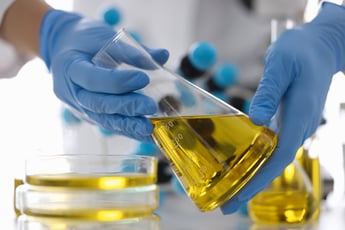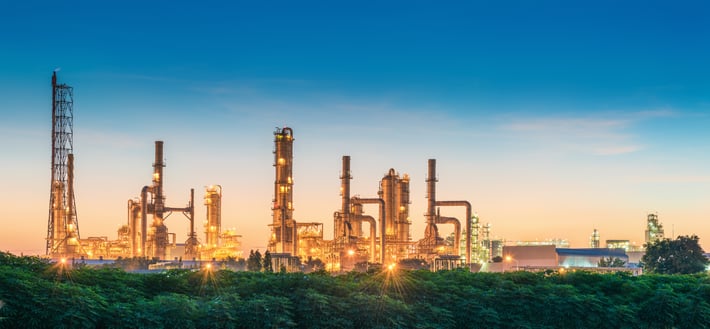By now you may have heard the exciting news that Paragon Scientific (Paragon) has joined the LGC Standards family, and has joined forces with VHG, ARMI, and MBH to create LGC Industrial.
What does Paragon specialize in? Revered as a trusted partner in European markets, Paragon specializes in the production of premium quality reference materials including Density, Flash Point, Refractive Index, and Viscosity standards. We are excited to bring these products to the global markets.
 These, and the many other reference materials produced by Paragon, are essential to analysis performed by our Industrial customers.
These, and the many other reference materials produced by Paragon, are essential to analysis performed by our Industrial customers.
Density values are used to monitor material quality during the production of crude oil and at material transfer points throughout petroleum industry supply chains. Testing of in-process samples purchased raw materials, and samples from ships and tanks are performed to monitor contamination that may occur during handling. Density is also used to establish the price of crude in trading. Several standard methods exist for the analysis of density, including ASTM D4052 and IP 365.
Flash Point is a critical data point for quality assurance, and the analysis of flashpoint is a strong tool when used routinely to keep petroleum-based products true to grade. Contamination of fuels can cause significant changes in both performance and monetary value, and flash point is one of the core testing methods used in identifying contamination. Testing for flashpoint is performed using one of two methods: closed cup or open cup. Either of these methods, when properly executed, will provide a precise characterization of the fuel tested, and are extremely important in identifying contaminants in the fuel, especially those that are more volatile than the fuel itself.
Refractive Index analysis is performed in the assessment of base fuels and coolants. The Refractive index can be determined using a hand refractometer or, for improved accuracy and precision, it should be measured in a laboratory with a benchtop refractometer. The data provide important information about mixture composition and possible sources of mixture incompatibilities.
Viscosity is a measure of a material’s resistance to flow. Viscosity, while a fundamental characteristic, is also changeable, depending on certain environmental conditions. Temperature fluctuations, especially excessive heat, moisture, and exposure to air, all can impact viscosity. In the petroleum industry, viscosity is used as an indicator of an oil’s ability to support loads. Viscosity is monitored by both lubricant manufacturers and oil condition monitoring programs to ensure that oil is fit for purpose.

To view our whole range of Paragon products please visit our webshop:
Would you like to learn more?


